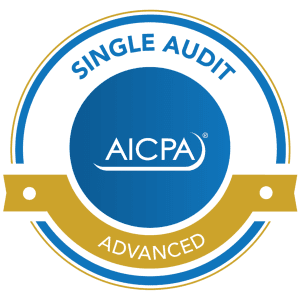Is Your Purchasing Cooperative Following These Five Procurement Standard Methods

Do you contract with a purchasing cooperative for your food service program purchases (or any other purchases with federal funds for that matter)? If so, you might be thinking that you’ve dodged a bullet and that the new uniform guidance procurement standards don’t apply to you. Unfortunately, you’d be wrong.
You see, even if you contract with a third party for procuring your purchases, the responsibility for compliance with the Uniform Guidance remains with you. So what does this mean exactly? Let’s break it down …
Read Also: Uniform Grant Guidance: What All Government Entities Need To Know
New Uniform Guidance Procurement Standards Extend To Purchasing Cooperatives
You’re likely already familiar with the major procurement standards changes that, after two grace periods, are finally going into effect. (Entities with year ends of 12/31 were expected to follow the new procurement standards beginning 1/1/18 and those with 6/30 year ends will be required to implement the new standards on 7/1/18.) What this means to you, under the new uniform guidance, is that the following five methods must be followed with regard to the purchases your entity makes.
1… Procurement by micro purchase
- Aggregate dollar amount not to exceed $3,500.
- Entity must distribute purchases equitably among qualified suppliers.
2… Procurement by small purchase
- Aggregate dollar amount between $3,500 and the Simplified Acquisition Threshold of $150,000.
- Entity must obtain price or rate quotations from an adequate number of qualified sources.
3… Procurement by sealed bids
- Purchases greater than $150,000 that lends itself to a firm fixed price contract and selection of the successful bidder can be made principally on the basis of price (i.e. construction-type contracts).
4… Procurement by competitive proposals
- Purchases greater than $150,000 that are not required to meet the specifications for sealed bid purchases. This is similar to the request for proposal process many entities are familiar with.
- Proposals must be solicited from an adequate number of sources and the entity must have a WRITTEN method for evaluating the proposals.
5… Procurement by noncompetitive proposal
- Entities should use this method if:
- The item or service is only available from a single source.
- The public exigency or emergency for the requirement will not allow for competitive solicitation.
- The federal awarding agency or pass-through entity expressly authorizes.
- After solicitation of a number of sources, competition is determined inadequate.
- If using this method, we would caution entities to ensure that all documentation is in place as sole source procurement is typically an audit red flag.
Hold Your Third-Party Purchasing Cooperative Accountable Or Pay The Price
If you’re utilizing a third party purchasing cooperative, be sure to review your contract or contact them to determine if they are aware of these changes. Additionally, don’t forget to ask if they’ve implemented the necessary processes to comply with the uniform guidance procurement standards. Remember, if your purchasing cooperative fails to properly follow procurement standards, your entity (not theirs) could be the one looking at an audit finding.
Your entity is responsible for compliance with regard to these new procurement standards; after all purchasing cooperatives typically don’t receive federal funding and are not audited under uniform guidance standards – but you do, and you are. It’s up to you to make sure the third-party purchasing cooperative you work with are in compliance to avoid potential issues in your own audit.
Need help ensuring that your entity is compliant with the various nuances of uniform guidance? Email the government services team at Rea & Associates today to learn more or to speak with a knowledgeable member of our team.
By Chad Gorfido, CPA (Medina office)

